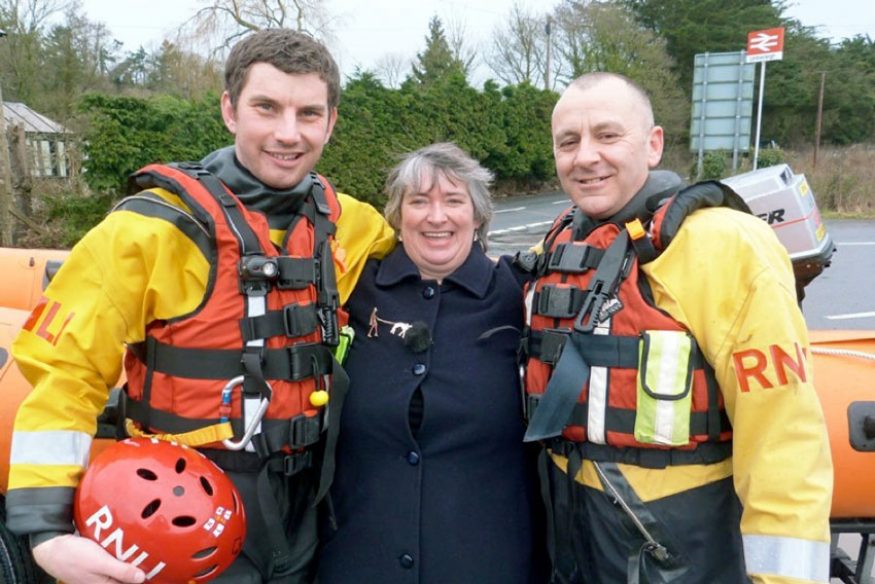In a positive start to 2015 thirteen volunteers at Porthcawl lifeboat attended the station and passed the RNLI’s Casualty Care course run by staff instructor Grant Walkey from the institution’s Poole headquarters.
Each of the candidates attended the 24 hours of training spread over a two week period, some were able to complete daytime sessions whilst others attended during the evening due to work commitments. The RNLI states that casualty care is a crucial link in the search and rescue (SAR) chain of survival that allows lifeboat crews to save lives at sea. Casualties have to be treated and kept alive often in an unforgiving hostile environment, frequently isolated from assistance until the casualty can be handed over to professional help.
Grant told crew, ‘The course focuses on effective hands on treatment rather than complex theory or diagnosis and empowers rescuers to confidently treat casualties. Maritime SAR medicine is a specialised field and the RNLI now has an unique bespoke course that prepares lifeboat crew to manage the situations that are encountered in the operational environment. During the training each attendee has to pass both a written and a practical scenario to demonstrate their individual skills. Attendees here at Porthcawl have been amazing in their approach to the learning process and highly skilled in its application’.
Porthcawl Lifeboat Operations Manager, Philip Missen MBE said, ‘This year we celebrate the 50th anniversary of our station opening and this is a great start to our special year. We are indebted to the dedication and commitment to training shown by our volunteers and congratulate each attendee in passing this intense course. I have been encouraged also by the high standard of training delivered by the RNLI and Grant in particular, feedback from the crew told me that it had been a most interesting and testing couple of weeks. Besides the theory element, Grant provided realistic practical scenarios allowing crew to demonstrate their skills in dealing with illnesses, severe injury, completing CPR and safely evacuating casualties’.



Get Social